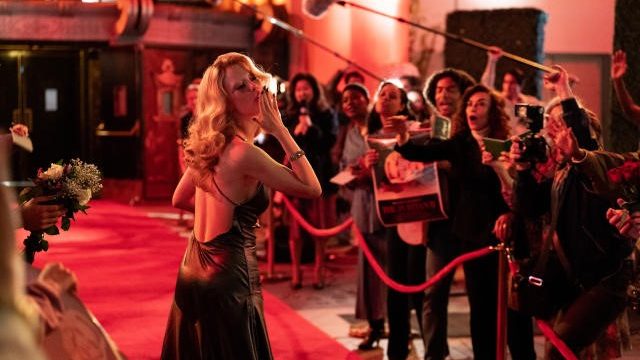A Hollywood welcome for…
- A screen legend
- A scream legend
- The Wastelands
- The Big Apple
Thanks to Nunya for cotributions this week. Send articles throughout the week to ploughmanplods at gmail, post articles from the past week below for discussion and Have a Happy Friday!
At The New York Times Alyssa Wilkenson examines the life of Shelley Duvall through her most famous role:
It’s hardly a new tale for Hollywood heroines, who have a long history of being driven out of the industry by one monster or another. Yet though she missed her life in Hollywood, Duvall faced her future a lot like a Gothic heroine would. Interviewers in the post-“Dr. Phil” period noted that she could seem scattered but also resilient, surmounting mobility issues by driving around her small town in a white Toyota 4Runner. There was that tension between vulnerability and courage again — the determination to keep going without forgetting the past. And if she didn’t manage to fit neatly into the pre-existing narratives of others, that was just more evidence that Shelley Duvall was one strong heroine.
Speaking of horror heroines, Adam Nayman’s review of Maxxxine at The Ringer praises the poise of its lead while questioning the relatability of its references:
It’s clear that one of West’s structural and tonal models is Once Upon a Time … in Hollywood, which isn’t a horror movie but still bristles with a sense of dread—think of the slow-burning Spahn Ranch sequence, which scrambles genre archetypes (it’s a menagerie of hippies, cowboys, and serial killers) but never telegraphs where it’s going. MaXXXine’s stalk-and-slash set pieces hit all the right marks—deep-red giallo lighting; close-ups of black-gloved hands; murky camcorder textures à la Lost Highway—but rarely transcend them.
Emily St. James writes on the structure and characters of Furiosa and its meaning in the year 2024:
Hemsworth’s portrayal of Dementus in Furiosa has been compared to any number of modern would-be warlords. And while I see the comparison, I have come to think of him less as any specific figure and more as a kind of personification of the concept of doomscrolling. If hope has been stripped from the world, then all that is left is a hopefully entertaining performance of despair. And Dementus is riotously entertaining! He struts through the film, a peacocking soccer dad. If Fury Road villain Immortan Joe obviously has a military background, Dementus seems like he might be a really talented preacher or, like, a hotter Bill Maher. He’s a guy who assures you that you don’t need to think about anything beyond what he’s told you is true. Give in to the hopelessness, and your life will be better, he argues, because to give in to the hopelessness is to let him take over your life until you believe nothing beyond the brutal emptiness of the wasteland is possible.
For Crooked Marquee, Chelsea Spear looks at the city of New York through the films of Susan Seidelman:
Seidelman shared her contemporaries’ interest in centering female characters who weren’t afraid to be unlikable. Where their movies were more formally experimental, however, she applied her interest in romantic comedies from the Golden Age of Hollywood to a series of features set on the Lower East Side. By making movies about difficult women that were steeped in both slapstick comedy and punk attitude, Seidelman brought the Lower East Side to the multiplex and made punk and new wave both cooler and more accessible to suburban teenage girls.

